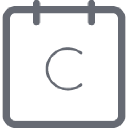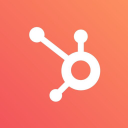How We Developed A $6K/Month Parcel Tracking Software While In College
Hello! Who are you and what business did you start?
Hi There! I'm Arthur Co-founder of Deepfinity, a proptech/logistics company. We've built an internal parcel tracking software tool to help large buildings' mailrooms and receptions deal with the influx of online shopping. I started the business four years ago with two friends while we were at university as a side project and now work full time on the business.
It took a while for us to get our first client, but we managed to make our first revenue 1.5 years ago and since have been growing 20% Month on Month. We are currently making $6K/Month.

What's your backstory and how did you come up with the idea?
My journey started in the first year of university at King's College London. I was fresh out of school and eager to make some money. I didn't have any real skills; I knew how to build a website and wasn't too bad at design. I had also gotten excellent grades in the International Baccalaureate because I had understood which tasks had the best grade yields relative to the imputed effort. So I teamed up with a friend of mine, and we built IB survivors.com, a tutoring and ebook website on how to do well in the IB. We built up the business and sold it within a year (August 2015) to a tutoring company for a few £1000s. I spent some of that money partying during the summer and wanted to reinvest some of it into a tech business as I was studying computer science at the time.
I came up with the idea for our flagship product Parcel Tracker in my second year of University (October 2016) when I saw how much time the reception staff at our student accommodation was spending logging deliveries.
Amazon would deliver some parcels to a buildings' reception, and it would be the receptionist's job to handle the distribution of the packages. As the reception staff was holding onto parcels, they needed to log everything that had come into the building and collect signatures when handing off the parcels just in case some of the packages got lost. Traditionally all this logging process was done manually using pen and paper, so we decided to automate it using some smart computer vision tech and a mobile application. We effectively started building the most advanced mailroom management software out there!
Being on a computer science course, I got my friend to join me, and we started ideating how we could build up the system and software. I also put into the business $1500 as working capital for petty expenses. Before we built anything, we spent around a year validating the product and making sure there was a demand for it in the market. I suited up and went building to building in Canary Wharf (the part of London with lots of high rises) talking to building managers. We carried out about 5 interviews to understand what the product needed to look like and built an interactive prototype using Adobe XD (it was ugly):

I even managed to get a pre-order on the product before it was even built. This pre-order served to validate that what we were going to develop was needed in the market. We also knew there was some competition, but none of them lived up to what we believed the market needed.
We were initially five people, however, somewhere along the line, only Luca was left. So, the two of us started building up the product. We also applied to an accelerator called Kings20 and were accepted (July 2017).
Take us through the process of designing, prototyping, and manufacturing your first product.
Luca and I were studying throughout the first two years of Deepfinity's founding, and neither of us thought that dropping out was the correct thing to do, Deepfinity wasn't going to be the next Facebook. Being realistic, we decided to approach the development of Parcel Tracker very practically.
We decided to only build the minimum we needed to get to the next stage of our journey. Every step of development, we released a new functional version of the product, working in the agile methodology. We also accepted that we would incur lots of technical debt that we would need to fix later on (we are still fixing some of it right now).
As I had alluded to in the previous part, in the summer of 2017 as we were preparing to start our accelerator program, we had 1 pre-order, so we started building the software. I did the design work and Luca programmed it. Here's what it looked like:

We spent about two months developing the software over the summer. Luca was also doing his internship at HPE at that time. We finally had a version of the software ready, so I flew back to London to get the system deployed with our pre-order client (I was spending the summer at my parent’s home in Switzerland at the time). But once in London, the pre-order client simply ghosted us, and we never ended up deploying with them.
As we were part of the Kings 20 accelerator program to this point, we decided to push through and not give up. Over the next year, we continued to improve our software incrementally. We always kept our costs relevantly low as neither of us required a salary.
During the academic year of 2017-2018, we learned a lot, but the business didn't gain much traction. We were able to win grant funding from pitch events totaling $15,000; however, didn't close a single client. So, we kept this money in reserve until we would need it.
Describe the process of launching the business.
We effectively launched our product as soon as we had the idea for it. We tried to sell it before we even built it, and then over the next two years we launched our product multiple times, no one cared in all honesty, so we relaunched until some people took note.
People always picture that they will spend a few months building a product and then launch it to critical acclaim; it's never really like that. Everything is an iterative journey when running a SaaS startup; you build, test, learn, and improve. This applies to both product and sales/marketing.
Since launch, what has worked to attract and retain customers?
We've operated from the start with the idea a business needs to be built brick by brick with a solid foundation. We strived to get customers that would feel invested in what we were building and aimed to go above and beyond what was expected of us as a company.
Happy customers would serve as the most effective growth hack; they would recommend us to within their company to other builds and their colleagues from other companies. As Brian Chesky (founder of Airbnb) said wisely said:
“If 100 People Love Your Product, That's Enough."
We made sure that the software was always working well, and when it wasn’t our customers got a goodies bag for Halloween as an apology from us!

Most of our sales to date have been through a pure grind with the occasional delicate touch to stand out. For example, one potential client went cold on us, so we sent them some custom M&Ms with their company logo, my phone number and “let’s chat”.

We also had 2 more potential clients go cold on us and we sent them some infographics with the opportunity cost of not doing business with us. Neither of them responded on the day of, however, a few months later we closed one of them and they are the largest contract we have to date.

We are still working on that initial 100 people and are about 30 people in. Referrals are a driving force of sales for us and have been particularly useful when working in a closed environment such as property (property managers are people we sell too).
More recently we have been experimenting with PPC particularly with the following channels:
- Capterra
When you do this type of experimenting, you must make sure that all the analytics are in place. We used Google Analytics and Tag Manager to get everything set up.
For Google, we have tested a range of keywords and ads, and have found a few ads that have had incredible click-through rates (upwards of 30%). Having now identified what keywords to use, we are refining the self-service platform we have on our website and will shortly start driving traffic to it. The cost per click for the google ads we ran ranged from 1-5 dollars.
Capterra has allowed us to advertise in front of a highly qualified audience. I suggest having a look at doing PPC ads through them if you are running a B2B software company. The PPC on this channel, however, is more expensive, due to the highly qualified users.
LinkedIn has been beneficial, however much more expensive overall than the two above. LinkedIn does offer some excellent options in terms of narrowing down the search parameters to a target audience.

On the long-term SEO and client referrals will be the best strategies. We want to move away from the paradigm where a startup for every dollar they raise will spend 40c on ads with Google or Facebook.
How are you doing today, and what does the future look like?
Today we are working towards becoming profitable off the core Parcel Tracker B2B product. The unit economics and margins of Parcel Tracker are outstanding, and it's time to scale the business.
Don't mistake interest for traction; people are too polite to tell you your idea is crap. So, until someone pays you, you haven't validated your product.
To achieve this scaling, we are pushing B2B sales on two fronts; enterprise and self-service. They require quite different sales strategies and slightly different product features.
While the self-service product will yield smaller clients, there will be a much larger and consistent volume of them. This will make sales predictable and on the long-term exponential, as we start ranking better on google. For the self-service platform, we are focusing on understanding the PPC key terms we need to rank on and how to increase our ranking on google. Regarding the product side of things, we are trying to make the platform easy to use. It should be a no brainer.
From the enterprise side of sales, we are using our connections to get warm intros to large property managers and sell the software for their substantial portfolios. This type of selling is more sporadic and results in large spikes. The product priorities for this type of sales are security, stability, and the ability to manage multiple buildings from one point.
Once we nail the points above for English speaking countries, we'll start expanding into different geographies.
Through starting the business, have you learned anything particularly helpful or advantageous?
You can very quickly get action paralysis, so always remember "just do it". At every point in your business, you will be at a crossroads, be it when deciding how to build the product, raising financing, or anything else. Taking too long and trying to over-optimize will halt your progress. As a startup, you should prioritize moving fast and iterating, rather than trying to get everything perfect from the get-go.
"A good plan violently executed now is better than a perfect plan executed next week "– George S. Patton
A way to break out of this paralysis, and move fast without making idiotic decisions is to ask someone who has been there before. This is why it's critical to surround yourself with other entrepreneurs and experts in your domain. They will be able to give you a wise council if you ask them very directed questions.
What platform/tools do you use for your business?
We have leverage software to automate as much as possible and make our small company punch above its weight. I'd categorize our software into three categories; sales, company management, and tools.
Sales:
- Hubspot: we use it as a CRM, for scheduling emails and ticket servicing. You can get the startup discount which gives you a 90% discount for the first year of usage, 50% for the second year and then its full price after that.
- Zoom: for client calls and demos. We have one premium license
- Vysor: to share the Android screen during the application demos
- Google - Analytics, Ads, Tag manager, and Arc: For advertising and track usage and conversions. Arc is used to push Analytics stats weekly into our slack channel.
- Adobe Sign: for digitally signing contracts
- Krisp: Removes background noise when on video calls
- Mail Tracker: a mail tracking tool that shows you when emails have been read WhatsApp style and show you when others send tracked emails. Great to see if people are ignoring you or haven't received the emails yet
- Wix -> Webflow: For the website design and building, however, we are transitioning to Webflow as Wix has slow loading times.
- Linkedin: for prospecting new clients
- Calendly: for booking demos and even internal meetings. I have linked it to Zoom, so it auto generates a call
Company Management
- Zoom: We use zoom for internal calls, but no one has a premium license as the calls should be concise. We have integrated zoom with slack, so the /zoom command creates a call straight from slack.
- ORA: It's our Kanban and project management tool; imaging Trello mixed with a timer. We can create a backlog of tasks and see how much time we spent working on them during the week. This is great to gauge the company’s productivity and time working.
- Notepad: We use to log all our meeting notes. When we want to get fancy, we also user Otterbox (voice to text software).
Tools:
- MS Office: For office stuff
- Adobe CC – Premiere, Illustrator, Photoshop, XD, Encoder: For Video editing, graphic design, photo-editing, prototyping the software and exporting edited videos, respectively.
Favorite software
- Mail Tracker
- Ora
- Calendly
What have been the most influential books, podcasts, or other resources?
Predictable Revenue: book on sales that helped us generate our first dollar. Without this book, we might never have made any money
Never Split the Difference: Great book on negotiation, it has fallen into the mainstream for a great reason.
Acquired Podcast: Amazing podcast on business IPOs, acquisitions, and their business models. They talk about startups, large companies, and legends in our space.
Shoe Dog: The fantastic story behind Nike, it's super exciting and motivating.
The Hard Thing About Hard Things: A book about entrepreneurship and the crazy stuff you will have to go through. It's motivating and will increase your threshold to adversity just knowing what some people went through.
Advice for other entrepreneurs who want to get started or are just starting out?
Remember, until someone is willing to pay you for your product, it's not a business, it's a hobby. Don't mistake interest in traction; people are too polite to tell you your idea is crap. So, until someone pays you, you haven't validated your product. Even after that, it's not validated, you need to reach your first 100 customers (depending on how much each customer pays).
Get involved in the community; you will learn so much from them. Try to make friends in the startup world with a few types of people, those that have a company at your stage, just a little ahead, and a lot ahead. They will each be able to help you and give you tactical (companies just ahead of you) and strategic advice (companies that are much more ahead of you). As time goes on, you will see other companies will start asking for help from you, and you will learn to help them.
Are you looking to hire for certain positions right now?
We are currently hiring the following positions:
Growth Hacker (Remote or In-Person at London Office) – $37,000/year + Bonus + Equity: Their role will be to wage asymmetric warfare on our competitors, get us ranked one on google and drive organic traffic to the channel. We are looking for someone who is either an expert in SEO, marketing, and growth hacking or a fast learner with experience in the property and tech industry.
Web Front End Developer and Designer (Remote or In-Person at London Office) – $37,000/year + Bonus + Equity: A web designer and front end developer that can work independently and has a love for making both beautiful products and using cutting edge technology. Basic Stack overview: React, Redux, Typescript.
Where can we go to learn more?
If you have any questions or comments, drop a comment below!

Download the report and join our email newsletter packed with business ideas and money-making opportunities, backed by real-life case studies.

Download the report and join our email newsletter packed with business ideas and money-making opportunities, backed by real-life case studies.

Download the report and join our email newsletter packed with business ideas and money-making opportunities, backed by real-life case studies.

Download the report and join our email newsletter packed with business ideas and money-making opportunities, backed by real-life case studies.

Download the report and join our email newsletter packed with business ideas and money-making opportunities, backed by real-life case studies.

Download the report and join our email newsletter packed with business ideas and money-making opportunities, backed by real-life case studies.

Download the report and join our email newsletter packed with business ideas and money-making opportunities, backed by real-life case studies.

Download the report and join our email newsletter packed with business ideas and money-making opportunities, backed by real-life case studies.








